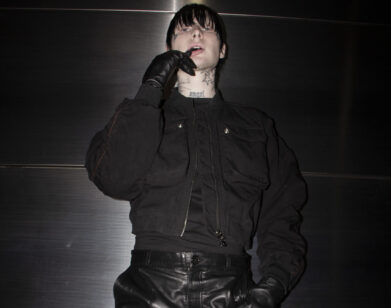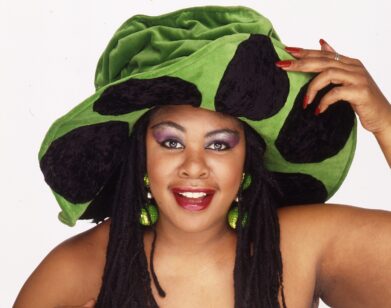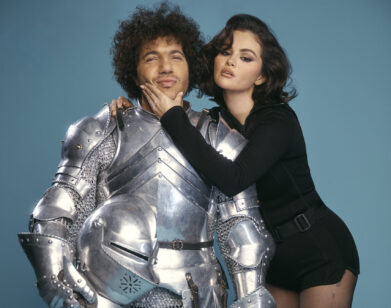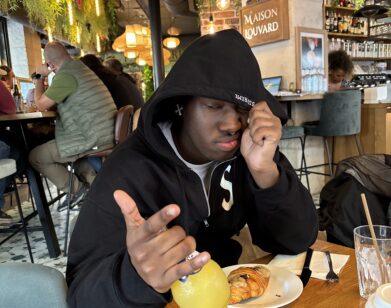Diane Birch Finds Her Golden Age
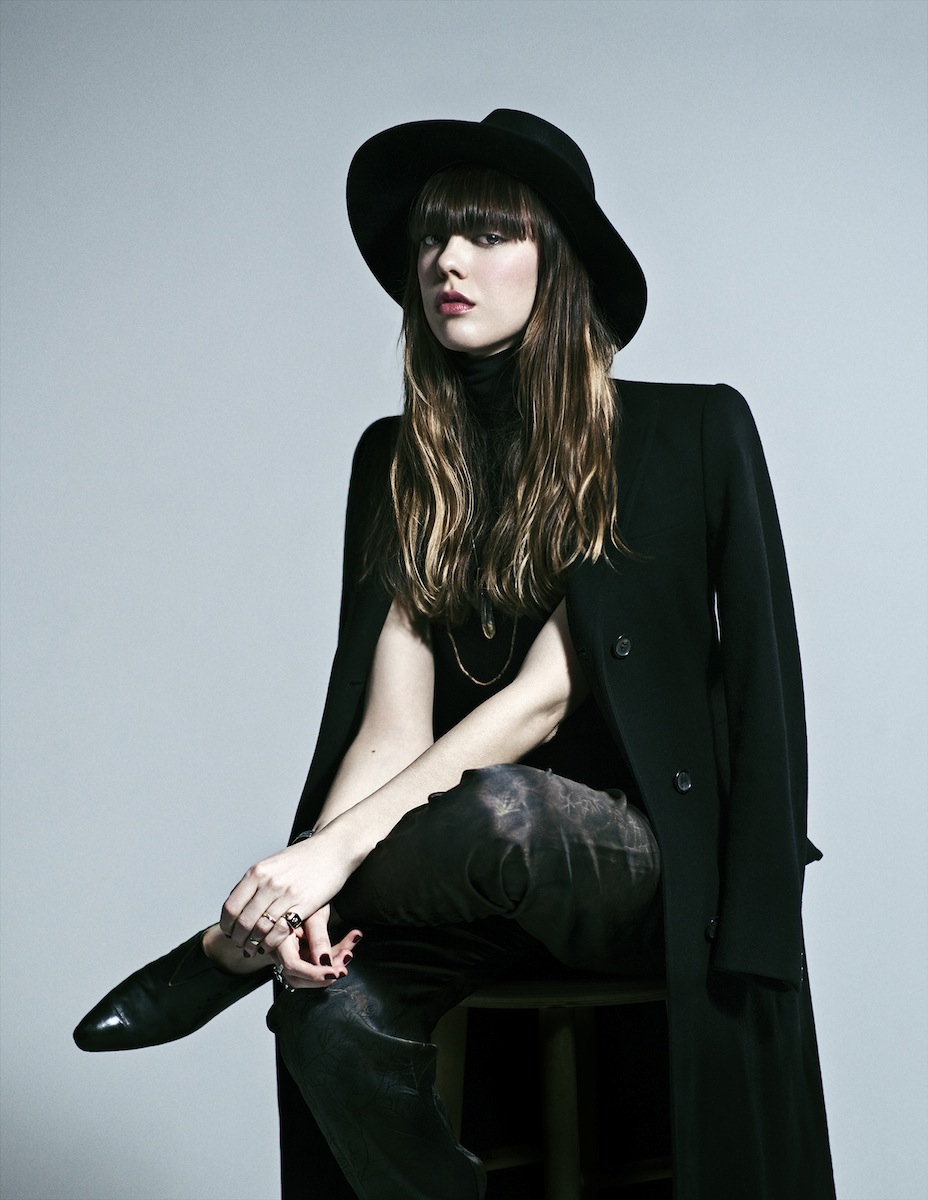
ABOVE: DIANE BIRCH. PHOTO BY WENJUN MIAKODA LIANG
Â
After the release of her 2009 debut LP, Bible Belt, Brooklyn-based singer/songwriter Diane Birch encountered numerous journalists and fans who assumed that she had grown up listening to Carole King. Birch’s soulful voice and piano-driven compositions indeed recalled the sounds of early ’70s songwriters such as King, Elton John, Carly Simon, and The Carpenters. But Birch, the daughter of a missionary, was exposed only to classical and church music during her early childhood, which was spent in Zimbabwe, South Africa and Sydney, Australia. During her teen years, after her family settled in Portland, Oregon, she rebelled against her secluded, religious upbringing and embraced the music of post-punk and goth bands instead.
Birch moved to Los Angeles in her late teens with the intention of composing scores for movies. As that work eluded her, she played piano in hotel loungesâ??which led, on one occasion, to a jam session with Prince at his houseâ??until finally trying her hand at songwriting. When she signed on with a London-based manager, relocating there and inking a publishing deal, she saw herself as working toward a Radiohead-meets-Portishead sound. Instead, her songs ended up tapping into Americana, soul, and Motown. She took up residence in New York after signing with her label, S-Curve Records.
Last fall, Birch released her sophomore LP, Speak a Little Louder, a self-reflective, emboldening collection that saw the artist expanding her sonic palette with synth textures and more robust rhythms. While “Lighthouse” has the rumbling gait of Kate Bush’s “Running Up That Hill,” the brisk “Tell Me Tomorrow” would sit well alongside modern country tracks. Elsewhere, there are echoes of Dusty Springfield-era R&B, ’80s Stevie Nicks, and even a trace of M83 on opener “Speak a Little Louder.” Though the road to completing Speak a Little Louder was long and, at times, frustrating for Birch, she capped 2013 by receiving notable year-end accolades for the album.
CHRIS TINKHAM: Can you talk a little bit about Speak a Little Louder‘s title track and how it relates to fighting for your vision? Is that something you had to do with this record?
DIANE BIRCH: I definitely did. The song is really speaking to my personal struggles with feeling like I’m not being heard and I’m misunderstood. It’s taking myself out of the victim position and giving myself more responsibility, and realizing that if you really want something, you have to change your intention and your delivery. If you’re not getting what you want, maybe it’s because you’re not being heard, you’re not speaking loud enough. And it’s not necessarily volume-wise. It’s about bringing your message and your voice, elevating it and constantly challenging it.   Â
TINKHAM: You’ve said that there were points during the making of this record where you contemplated throwing in the towel. What was causing your frustration?
BIRCH: A lot of things. It was an emotionally, personally very hard few years for me. I wrestled a lot with self-doubt. I’ve always had such a strong desire for what I wanted for my career, and as I go through it, I’m watching it change and morph into something a little bit different. So there was a lot of confusion as to whether I really wanted to do it, whether I wanted to go for it, because I put so much energy and effort into it, and it’s hard. It’s really hard to be an artist and put out records and put your heart out there. It’s such a gamble, and you’re often spending so much time fighting for something that you really believe in and feeling like it’s not really getting anywhere. It definitely can try your patience. And I did have a very emotional time. I was sort of miserable and depressed. Music was my savior, but it was also the thing that I felt at times was breaking my heart. So I went back and forth. But I think it’s pretty natural for any artist to feel that way. I think that’s par for the course. You have to go really dark and deep with yourself and get your hands dirty and go into territories that you don’t want to go into and feel things that you don’t want to feel, but that’s what ultimately pushes out the good and gives you some kind of a message that you can take and channel into something better. That energy’s really powerful.   Â
TINKHAM: Do you remember a certain point where the self-doubt and frustration turned around, and things began to click? Was there a certain song?
BIRCH: Yeah, for sure. I had finally gotten over the hump of my breakup. That was a really hard thing for me. I started spending a lot of time cultivating friendships and reading a lot. I think that I came to a point where I started to really feel satisfied on my own. I spent a lot of time in the trenches of my own mind. [laughs] And I didn’t choose to run away and escape into something destructive. I chose to sit there and deal with it. I started to see that work rewarded, and at a point where I was really starting to feel that within myself, I wrote “Lighthouse.” It was really just about finding that light within yourself and not needing to find it through external places, whether it be the perfect situation with your record, or the perfect relationship, or money, or any of these things. That’s really not what’s going to bring light into yourself. It’s really something that you have to find on your own. So that song was meaningful in that way.
TINKHAM: With all the traveling that you’ve done in your life, do you have any recurring dreams about a certain period or place?
BIRCH: I don’t have a recurring dream of a certain period. I definitely have recurring dreams. My dreams are crazy and surreal, which is why I appreciate Carl Jung, ’cause I feel that there has to be some kind of correlation. My dreams are like surreal sci-fi thrillers, and I don’t spend time watching stuff like that. I never grew up on stuff like that. I’ve always just had very, very vivid dreams. This is awful to say, but, lately, I’ve been dreaming about witnessing murder a lot. What does this mean? During the making of the album, I had recurring dreams of two things. I was always on a plane, and inside the plane were these very different rooms, like a whole world inside of a plane. And there was always an issue with the plane; it was kind of taking off but not really. The other recurring dream was that I was always in this space, like a hotel, with these rounded edges, and there were no sharp edges anywhere. All the landscapes were rounded. I don’t know, it’s hard to explain. It probably sounds super silly, but I do have a lot of really weird dreams.
TINKHAM: What sparked your interest in goth culture when you were a teen?
BIRCH: I just think the fact that I was told not to be curious about the dark side, and it was such a religious-heavy upbringing.
TINKHAM: How were you exposed to it?
BIRCH: I had a really good friend in school, and her older sister was starting to get into the goth thing. So we were around her all the time, and we thought she was so awesome and amazing. I started seeing these little snippets of her world, and I was like, “I want that. I want to discover that. I like dark music and I want to wear those clothes.” [laughs] It was just like a spark, and it set me off. And I suddenly discovered this whole world of music that I totally loved. The Cure was my favorite band, even though they’re not specifically a goth band. I was listening to everything from The Cure to Depeche Mode to Siouxsie and the Banshees and Bauhaus and all of that stuff. It was just this release for me. I was able to channel a lot of my loneliness and my feelings of being misunderstood, and I could go into this world where it was okay to be really eccentric. There was a lot of creative energy that I had, that I feel wasn’t understood, and I think that whole world for me felt like another family, another place where I could feel heard.  Â
TINKHAM: Was there ever a desire to start or join a rock band?
BIRCH: No, I never had that desire. Nor did I ever have a desire to see my idols in concert. I would have loved to see The Cure. I didn’t understand the whole concept of:Â you love music, you buy the album, and then you go see them in concert. It felt like something that was so untouchable that I didn’t even attempt to try and bring it to any place other than my headphones.
TINKHAM: Have you seen Midnight in Paris?
BIRCH: I have. I really liked it.
TINKHAM: I thought maybe you could identify with the idea of “golden-age thinking” that’s discussed in the film?
BIRCH: For sure. It’s really one of my biggest inspirations, in a lot of ways. It fuels a lot of my writing. I’m very nostalgic, and I spend a lot of time in the past, in my mind. That’s part of my challenge, and what I really want to do is, I want to be present. I want to leave that in the past. When I say nostalgic, I mean my own life. I spend a lot of time reflecting on my past and not being able to process time. For so many years, I haven’t been able to wrap my head around the concept of time, just feeling like time is something that I don’t have control over. It’s such a release of control to finally accept that and then just be present. That’s always been a big challenge for me. So I did identify with that film. I was like, “Oh yeah, that’s kind of like me. I’m always living in the past.” When I was really young, I thought I was from the 18th century and I was trapped in this life, and I was so miserable and figuring how I could get back. Maybe I was just picking up on ideas of past lives, but I really did believe that I was from another era.
SPEAK A LITTLE LOUDER IS OUT NOW. DIANE BIRCH WILL PLAY THE BOWERY BALLROOM TONIGHT, JANUARY 22. FOR MORE ON THE ARTIST, VISIT HER WEBSITE.          Â
Â


